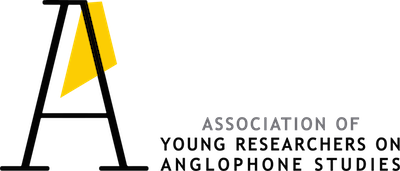Epiphanic Eros in Kate Chopin’s Uncollected Short Stories (pp. 135-145)
Paula Asensi Camarasa
University of Alicante / Autonomous University of Madrid
Abstract
Kate Chopin employs the theme of epiphany in her most famous novel: The Awakening (1899). Nevertheless, this topic keeps repeating throughout her literary production, as Chopin’s writings approach the epiphany from different perspectives: spiritual, sexual, religious, or physical revelations. This paper explores those of her uncollected stories that deal with the sexual “awakening”, specifically “The Storm” (1898) and “A Shameful Affair” (1892). Chopin’s uncollected stories are not usually in the spotlight in literary criticism, but this paper aims to highlight its importance as feminist epiphanies. After clarifying the concept of epiphany, both stories are analyzed as erotic epiphanies. These stories work in opposition in the treatment of sexuality, but they also share many points in common. While “The Storm” embraces the discovery of sexuality, “A Shameful Affair” reflects the fear of women to accept their erotic feelings. As a similitude, the stories share the topic of religion, though in different forms, and the ambiguity of the endings. Despite this ambiguity, Chopin accurately represents the situation of women in the American South at the end of the 19th century, as the stories under discussion depict women’s limitations in their sexual decisions.
Keywords: Kate Chopin, North American literature, epiphany, sexuality, short stories
Bionote
Paula Asensi holds a BA in English Studies from the University of Alicante and is currently studying a Masters in English Literature at the Autonomous University of Madrid. Her areas of interest are North American literature and Gender Studies. After writing her undergraduate dissertation about Kate Chopin’s The Awakening, she has focused on Chopin’s short stories. This article is the outcome of her research during the “Beca de Colaboración MECD” (2019-2020).
e-mail address: paula.asensi98@gmail.com
References
Beer, Janet, ed. 1997. Kate Chopin, Edith Wharton and Charlotte Perkins Gilman: Studies in Short Fiction. London: Palgrave Macmillan UK. https://doi.org/10.1007/978-1-349-26015-7_1.
Chopin, Kate. 2002. Kate Chopin: Complete Novels and Stories. Ed. Sandra M. Gilbert. 3rd ed. New York: The Library of America.
———. 2018. The Awakening. Ed. Margo Culley. 3rd ed. New York: W. W. Norton & Company.
Fluck, Winfried. 1982. “Tentative Transgressions: Kate Chopin’s Fiction as a Mode of Symbolic Action”. Studies in American Fiction, 10.2: 151–71. https://doi.org/10.1353/saf.1982.0017.
Horner, Avril. 2008. “Kate Chopin, Choice and Modernism”. The Cambridge Companion to Kate Chopin. Ed. Janet Beer. New York: Cambridge University Press: 132–46.
Kim, Sharon. 2012. Literary Epiphany in the Novel, 1850–1950: Constellations of the Soul. New York: Palgrave Macmillan US. https://doi.org/10.1057/9781137021854.
Koloski, Bernard. 1996. Kate Chopin: A Study of the Short Fiction. New York: Twayne.
Pratt, Annis, Barbara White, and Andrea Loewenstein. 1981. Archetypal Patterns in Women’s Fiction. Bloomington: Indiana University Press.
Puckett, James A. 2019. “Death and ‘Divine Love’: Kate Chopin’s Reading of Walt Whitman”. American Literary Realism, 52.1: 68-88. https://doi.org/10.5406/amerlitereal.52.1.0068.
Seyersted, Per. 1996. “Per Seyersted on ‘The Storm’”. Kate Chopin: A Study of the Short Fiction. New York: Twayne: 145–48.
Toth, Emily. 1999. Unveiling Kate Chopin. Mississippi: University Press of Mississippi.Wehner, David Z. 2011. “‘A Lot Up For Grabs’: The Idiosyncratic, Syncretic Religious Temperament of Kate Chopin”. American Literary Realism, 43.2: 154–68. https://doi.org/10.1353/alr.2011.0009.

This work is licensed under a Creative Commons Attribution 4.0 International License.

